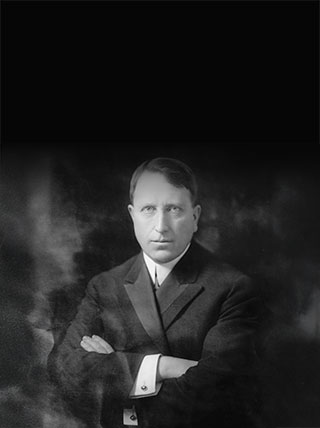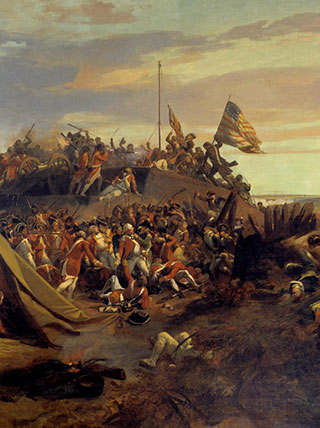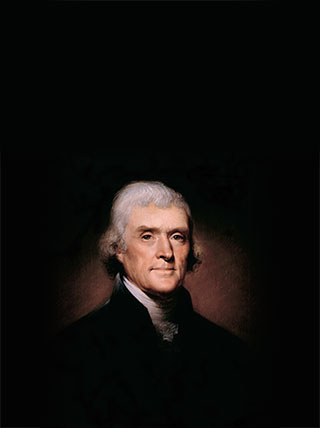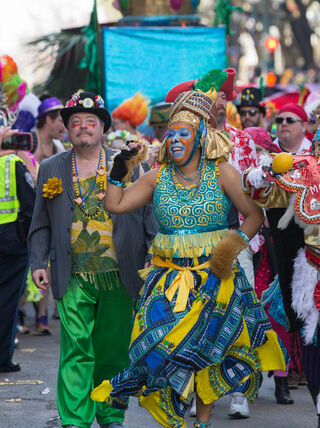Destinations
Sign in to continue
OR
Create An Account
Creating an account allows you to enroll in a program, reference your upcoming itinerary, and more.
Create an Account
We keep your personal information private, safe, and secure.
Search adventures
Filter Your Search
Close
interests
Date Range
The programs you see will begin and end within the start and end dates you selected. Expand your dates to see programs that may begin earlier or end later.
activity level
Traditional Adventures
Outdoor Adventures
duration
Price Range
Group Structure
Select
- 5
- 6
- 7
- 8
- 9
- 10
- 11
- 12
- 13
- 14
- 15
- 16
- 17
- 18
Traveling with 2 or more children
Select
- 5
- 6
- 7
- 8
- 9
- 10
- 11
- 12
- 13
- 14
Select
- 8
- 9
- 10
- 11
- 12
- 13
- 14
- 15
- 16
- 17
- 18
Only 1 child
Grandparent
Family Programs
Small Group
Micro Group
Women Only
Solo (Men and Women)
Solo (Women Only)
Special Offers
Availability
Has Availability (All Room Types)
Has Single Room Availability
Has Double Room Availability
Dietary Preference
Exclusions
Extensions
Grandparent & Family
Online Programs
Featured
New Programs
Most Popular
Program Not Found
This program number is not available. Please refine your search or
give us a call
and we’ll help. Looking for some suggestions? See our recommendations for you below.
Recommended For You
 Online ProgramOnline Lecture: William Randolph Hearst — The Man Who Made the NewsHistoryJoin us on Monday, Mar. 23, 2026, at 2 p.m. (ET)/ 11 a.m. (PT), for a one-hour lecture and Q&A to learn about William Randolph Hearst's life and legacy.Activity Level
Online ProgramOnline Lecture: William Randolph Hearst — The Man Who Made the NewsHistoryJoin us on Monday, Mar. 23, 2026, at 2 p.m. (ET)/ 11 a.m. (PT), for a one-hour lecture and Q&A to learn about William Randolph Hearst's life and legacy.Activity Level
Program No. 25712RJLength1 hourNewStarts at25 PortugalPaths Less Taken: Hiking Forests & Villages of PortugalOutdoor AdventuresEnroll Early And SaveHike your way through hidden villages and breathtaking natural wonders in a land of dramatic mountain ranges, thermal springs, ancient vineyards and dazzling castles.Activity Level
PortugalPaths Less Taken: Hiking Forests & Villages of PortugalOutdoor AdventuresEnroll Early And SaveHike your way through hidden villages and breathtaking natural wonders in a land of dramatic mountain ranges, thermal springs, ancient vineyards and dazzling castles.Activity Level
Program No. 25610RJLength13 daysNewStarts at5,999 NorwayVoyage to the Top of Europe: Norway's Storied CoastExpeditionJourney along Norway’s legendary coastline and deep into the Arctic Circle. Explore Viking history, meet the indigenous Sami people and stand at the very top of Europe.Activity Level
NorwayVoyage to the Top of Europe: Norway's Storied CoastExpeditionJourney along Norway’s legendary coastline and deep into the Arctic Circle. Explore Viking history, meet the indigenous Sami people and stand at the very top of Europe.Activity Level
Program No. 25670RJLength15 daysNewStarts at6,499 Online ProgramOnline Lecture: Brexit — A Political Earthquake in Modern BritainPolitical ScienceJoin us on Monday, Nov. 16, 2026, at 12 p.m. (ET)/ 9 a.m. (PT), for a free one-hour lecture and Q&A to explore the causes and consequences of Brexit.Activity Level
Online ProgramOnline Lecture: Brexit — A Political Earthquake in Modern BritainPolitical ScienceJoin us on Monday, Nov. 16, 2026, at 12 p.m. (ET)/ 9 a.m. (PT), for a free one-hour lecture and Q&A to explore the causes and consequences of Brexit.Activity Level
Program No. 25714RJLength1 hourNewStarts at0 MissouriSignature City St. Louis: History & Heritage in the Gateway CitySignature CitiesEnroll Early And SaveFrom historic Central West End to sleek Gateway Arch, St. Louis is a fascinating blend of past and present in the U.S. heartland. Explore its arts, architecture and magnificent parks!Activity Level
MissouriSignature City St. Louis: History & Heritage in the Gateway CitySignature CitiesEnroll Early And SaveFrom historic Central West End to sleek Gateway Arch, St. Louis is a fascinating blend of past and present in the U.S. heartland. Explore its arts, architecture and magnificent parks!Activity Level
Program No. 12804RJLength6 daysRating(5)Starts at2,549 Online ProgramOnline Lecture: George Washington & the Road to IndependenceHistoryJoin us on Wednesday, July 15, 2026, at 2 p.m. (ET)/ 11 a.m. (PT), for a free one-hour lecture and Q&A to learn about George Washington’s leadership in the fight for independence.Activity Level
Online ProgramOnline Lecture: George Washington & the Road to IndependenceHistoryJoin us on Wednesday, July 15, 2026, at 2 p.m. (ET)/ 11 a.m. (PT), for a free one-hour lecture and Q&A to learn about George Washington’s leadership in the fight for independence.Activity Level
Program No. 25716RJLength1 hourNewStarts at0 Online ProgramAge Well: Spirituality, Religion & the Aging BrainHealth & WellnessJoin us on Thursday, Apr. 23, 2026, at 4 p.m. (ET)/ 1 p.m. (PT), for a free one-hour lecture and Q&A to explore how spiritual and religious practices affect the brain as we age.Activity Level
Online ProgramAge Well: Spirituality, Religion & the Aging BrainHealth & WellnessJoin us on Thursday, Apr. 23, 2026, at 4 p.m. (ET)/ 1 p.m. (PT), for a free one-hour lecture and Q&A to explore how spiritual and religious practices affect the brain as we age.Activity Level
Program No. 25706RJLength1 hourNewStarts at0 Online ProgramOnline Lecture: Iconic American Museums — The Art Institute of ChicagoArt History & MuseumsJoin us on Wednesday, Apr. 15, 2026, at 2 p.m. (ET)/ 11 a.m. (PT), for a one-hour lecture and Q&A to learn about the Art Institute of Chicago.Activity Level
Online ProgramOnline Lecture: Iconic American Museums — The Art Institute of ChicagoArt History & MuseumsJoin us on Wednesday, Apr. 15, 2026, at 2 p.m. (ET)/ 11 a.m. (PT), for a one-hour lecture and Q&A to learn about the Art Institute of Chicago.Activity Level
Program No. 25703RJLength1 hourNewStarts at25 PeruA Taste of Peru for Women: Lima, Sacred Valley & Machu PicchuNature & EnvironmentSingles at no Extra CostWant to get a new perspective on Peru alongside other women? Experience this country and its people on a learning adventure that begins in the capital of Lima and ends in Cusco.Activity Level
PeruA Taste of Peru for Women: Lima, Sacred Valley & Machu PicchuNature & EnvironmentSingles at no Extra CostWant to get a new perspective on Peru alongside other women? Experience this country and its people on a learning adventure that begins in the capital of Lima and ends in Cusco.Activity Level
Program No. 25637RJLength9 daysNewStarts at3,449 PortugalSignature City: LisbonSignature CitiesEnroll Early And SaveMasterpieces of Portuguese architecture highlight this exciting adventure. You’ll also immerse yourself in music, art, artisanry and other icons of Portuguese culture.Activity Level
PortugalSignature City: LisbonSignature CitiesEnroll Early And SaveMasterpieces of Portuguese architecture highlight this exciting adventure. You’ll also immerse yourself in music, art, artisanry and other icons of Portuguese culture.Activity Level
Program No. 25611RJLength8 daysNewStarts at2,899 Online ProgramOnline Lecture: The Papacy — History, Power & InfluencePhilosophy & ReligionJoin us on Wednesday, May 20, 2026, at 2 p.m. (ET)/ 11 a.m. (PT), for a one-hour lecture and Q&A to learn about the history and influence of the papacy.Activity Level
Online ProgramOnline Lecture: The Papacy — History, Power & InfluencePhilosophy & ReligionJoin us on Wednesday, May 20, 2026, at 2 p.m. (ET)/ 11 a.m. (PT), for a one-hour lecture and Q&A to learn about the history and influence of the papacy.Activity Level
Program No. 25715RJLength1 hourNewStarts at25 Online ProgramOnline Lecture: Thomas Jefferson — America's First WriterHistoryJoin us on Wednesday, May 13, 2026, at 2 p.m. (ET)/ 11 a.m. (PT), for a one-hour lecture and Q&A to learn about Thomas Jefferson's writings.Activity Level
Online ProgramOnline Lecture: Thomas Jefferson — America's First WriterHistoryJoin us on Wednesday, May 13, 2026, at 2 p.m. (ET)/ 11 a.m. (PT), for a one-hour lecture and Q&A to learn about Thomas Jefferson's writings.Activity Level
Program No. 25709RJLength1 hourNewStarts at25








